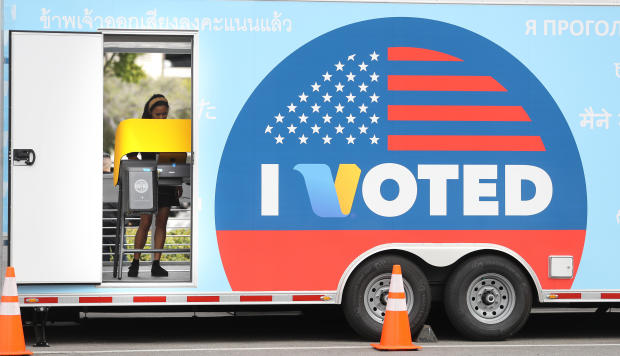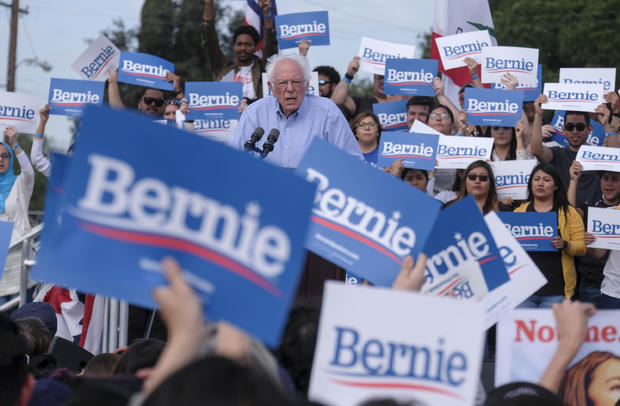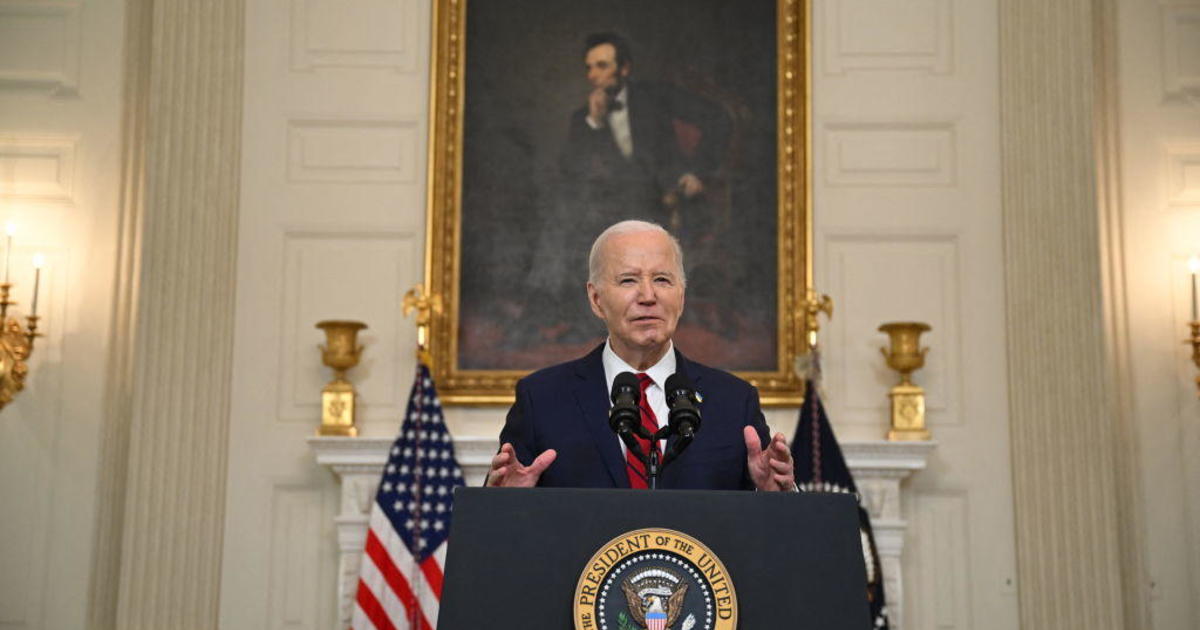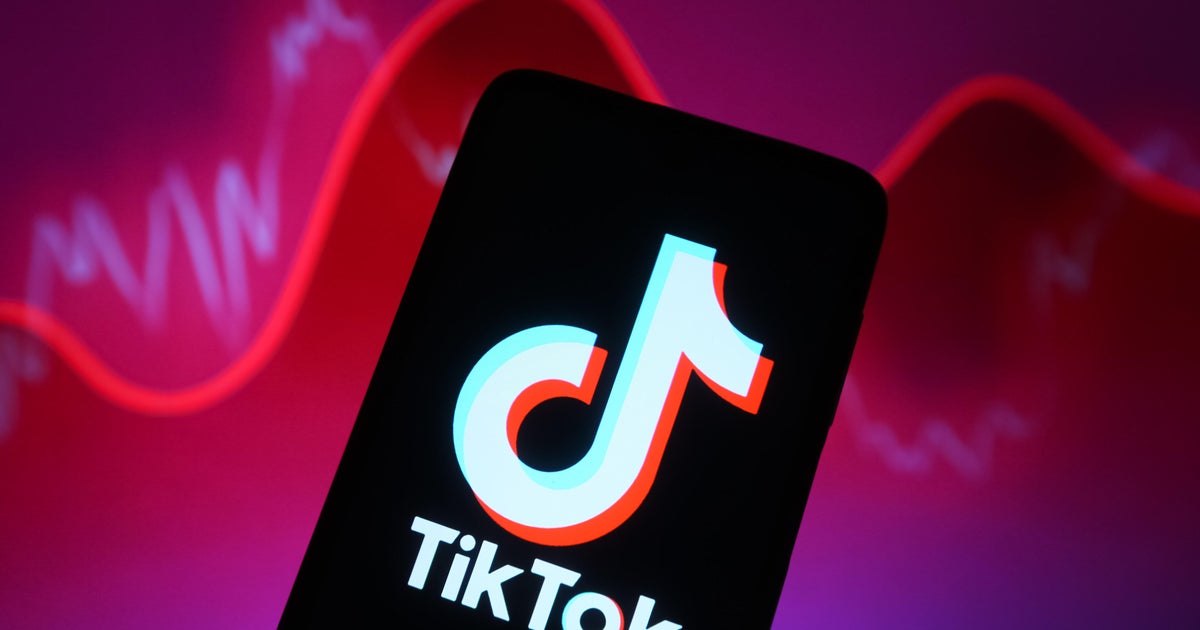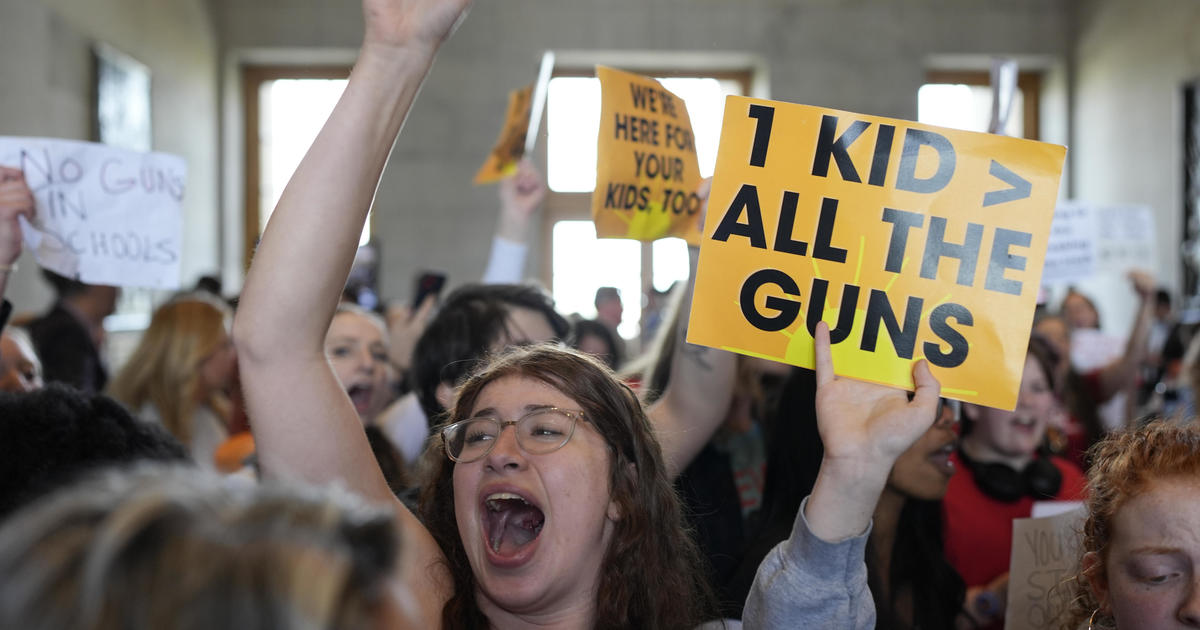California primary presents golden opportunity for Democratic hopefuls
San Francisco — The biggest delegate prize of the primary race is at stake in California on Super Tuesday, March 3. With more than 400 delegates up for grabs, or roughly 20% of the 1,991 pledged delegates a candidate needs to secure the Democratic nomination, the Golden State is poised to have a significant impact, especially given its more prominent position in the primary schedule this year.
"For the first time in a very, very long time, all eyes will be on California," said Assemblymember Kevin Mullin. In 2016, California didn't vote until early June, after it was evident Hillary Clinton would win the Democratic nomination. In 2012, President Obama was running for reelection, and California did not hold a Democratic presidential primary.
In the latest CBS News Battleground Tracker poll, Senator Bernie Sanders enjoyed a 12-point lead over former Vice President Joe Biden in California, followed by Senator Elizabeth Warren, Michael Bloomberg, Pete Buttigieg and Senator Amy Klobuchar.
Voting by mail
Election watchers might have to wait for the results. Most of the state's 20 million registered voters are voting by mail. The early voting process has been underway since February 3, and according to Political Data Inc., a California-based bipartisan data group, more than 16 million ballots were mailed to voters.
Last Tuesday was the deadline to request a mail-in ballot. As of Saturday night, only 20% of eligible voters had returned their ballots. It's possible that many voters may have waited to see how candidates would fare in the early states.
According to Paul Mitchell, vice president of Political Data Inc., turnout in California is likely to be in the 50% range, and he expects about three-quarters of the vote to be counted by Tuesday night and early Wednesday morning. Mitchell said some ballots "could be counted really quickly," but others might take "up to three weeks."
Mail-in ballots can be accepted up to three days after the election and, if history is any indication, millions of votes could be outstanding until Friday. If a mail-in ballot is postmarked on or before Election Day, it will be counted, as long as it arrives within three days of primary day.
Sam Mahood, a spokesperson for California Secretary of State Alex Padilla, cautioned that it is not unusual to have outstanding ballots and said he wouldn't be surprised if the number of outstanding ballots on Tuesday night surpasses the 2 million that were outstanding on Election Night in 2016.
"Precincts on steroids"
In addition to mail-in voting, 15 counties this year are participating in the "Voter's Choice Act Elections Model," which allows Californians to either vote at a regional "vote center" or return their ballots at one of many drop box locations.
The 15 counties implementing Voter's Choice Act this year have to designate a set of vote centers that will be open 10 days before the election. Three days before the election, participating counties have to designate additional locations.
Mitchell described the vote centers as "precincts on steroids." He said the features at these locations allow voters to change party registration, or request a new ballot. It's an attempt to make Election Day voting "really, really convenient," he said.
But because the vote centers have replaced traditional polling precincts, it might cause some confusion and frustration for voters on Primary Day.
A recent poll from the Price-Schwarzenegger Institute at the University of Southern California showed only 37% of likely California voters living in counties implementing new voting centers reported knowing their county had changed options. More than 60% had no idea that options had changed or couldn't answer the question. Among Latino voters surveyed, 58.5% did not know of new voting procedures in their counties.
Mitchell conceded the change could inadvertently have negative impacts for voters, adding, "when you implement a new system, even if you're implementing a better system, there's always a transition period where you might get worse results."
"No Party Preference" voters
Political operatives in the state think No Party Preference (NPP) voters could make a difference in the election. These voters make up roughly 25% of the voting population. Nearly 5 million ballots have been mailed to NPP voters in California. And by Saturday, about 12% had returned their ballots. Among registered Democrats, about 17% have already voted.
These independent, NPP voters are not allowed to participate in the Republican primary. But they may participate in the Democratic primary during early voting and at polling locations on Primary Day, if they took the extra step of requesting a Democratic ballot. If they're voting in person, they may still request a Democratic ballot when they go to the polls.
Mark Baldassare, president and survey director for the Public Policy Institute of California, says NPP voters "lean towards Democrats," and are now the fastest growing voting group in California.
"Those are a lot of younger voters, newer voters, and voters that might just at the last minute, something clicks and they decide they want to show up or something doesn't click and they decide to wait until the general," Baldassare said.
Sanders, who has been leading in polls in California, has been appealing to these voters and reminding them that "unless you request a Democratic ballot, you won't be able to vote in the Democratic primary. Please do that."
Ace Smith, who advised Hillary Clinton's California operation in 2016 and served as her state director in 2008, said the question for the Sanders campaign will be "what percentage can they get to get Democratic ballots and how good is their operation at doing that?"
He added, "I can tell you from 2016, they did not have a good operation doing that, but maybe they've gotten better."
Jeff Weaver, Sanders' 2016 campaign manager and now a top adviser, told CBS News the campaign has a "very aggressive program" to reach NPP voters. "The fact that we have gone through it, really makes a big difference," he said.
Sanders' current campaign manager, Faiz Shakir, told CBS News part of that outreach program includes recorded video calls from Sanders to NPP voters, as well as paid digital advertising. The campaign is also using videos from Congresswoman Alexandria Ocasio-Cortez, a top surrogate, to communicate with NPP voters.
Mike Bloomberg is making a play for NPP voters, too. A source close to his campaign told CBS News that his history as a Republican and now a Democrat makes him an "interesting" choice for NPP voters.
Bloomberg, in addition to blanketing the airwaves with ads, is relying on traditional methods of campaigning, like door knocking, phone banking, and sending mailers to reach NPP voters. Bloomberg's California communications director, Michael Buckley, told CBS News that the campaign does "really well" when they educate voters about the mayor.
The Bloomberg campaign's outreach to voters is focused around issues like healthcare, climate change, gun violence, and housing costs. These are all areas of concern for California voters, according to recent polling and dozens of interviews.
The delegate haul
California will send 272 district-level delegates, 90 at-large delegates and 54 pledged leader/elected official delegates, for a total of 416, plus 79 unpledged delegates. To be awarded delegates, candidates generally need to reach a 15% threshold.
Minority voters
In order to do well in California, experts say campaigns will need to attract minority voters. Hispanic and Asian Americans make up nearly 40% of eligible voters in the state and are expected to turn out in record numbers.
Mindy Romero, director of the California Civic Engagement Program at the University of Southern California, told CBS News "face-to-face" interactions with underrepresented groups would make the biggest difference.
Rafael Navar, California state director for Sanders, told CBS News the campaign's 23 offices are spread across underrepresented communities with the goal of "organizing where these voters are located." Navar said the Sanders team is in "places that most campaigns would neglect."
"This is a test case in California," Navar said. "Is it going to be about grassroots organizing in communities that is going to win an election in California or is it just a media, TV, and throwing money at the election?"
Navar said the team's "entire" California staff comes from California communities where they were "already leaders" and "trusted actors." Navar added that the campaign is trying to engage voters in "their languages and talking to them about fights that are local."
Biden, Warren and Pete Buttigieg are also reaching out to minority voters through their campaigns.
Biden's campaign has a California leadership council, which includes prominent leaders like former Los Angeles Mayor Eric Garcetti and Long Beach Mayor Robert Garcia. The campaign official said the council has been involved with strategy, messaging, and outreach to various communities.
Buttigieg has a network of over 3,500 volunteers in the state who are active in minority communities and across all of the state's 53 congressional districts. Campaign spokesperson Ben Halle said organizers are holding meetings, canvass launches and debate watch parties in Spanish while Buttigieg personally hosts roundtables with Latino community leaders in the state.
Warren's campaign recently hosted a Latino community engagement tour. Its national Latinx community engagement director holds forums across the state to focus on issues affecting the Latino community.
